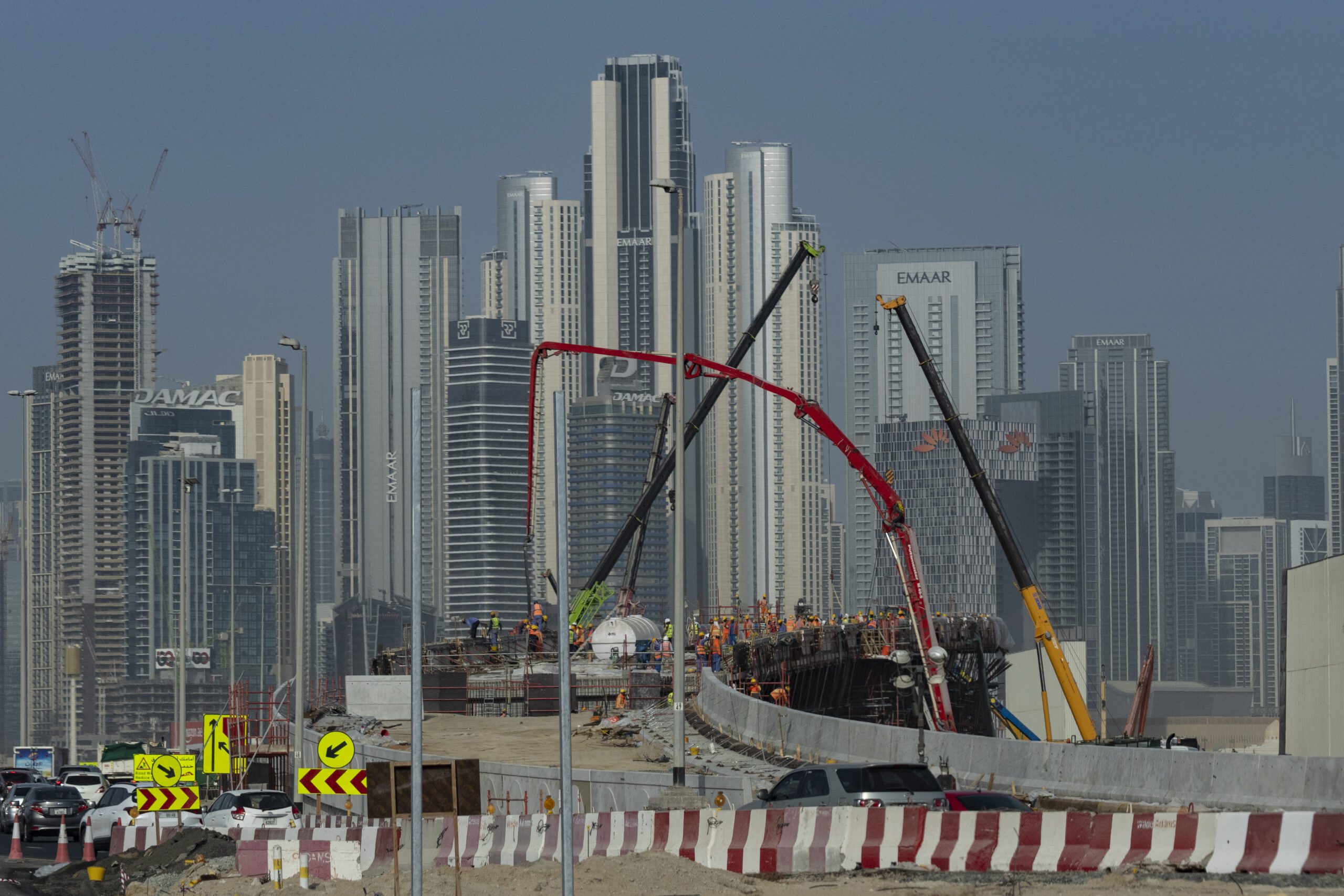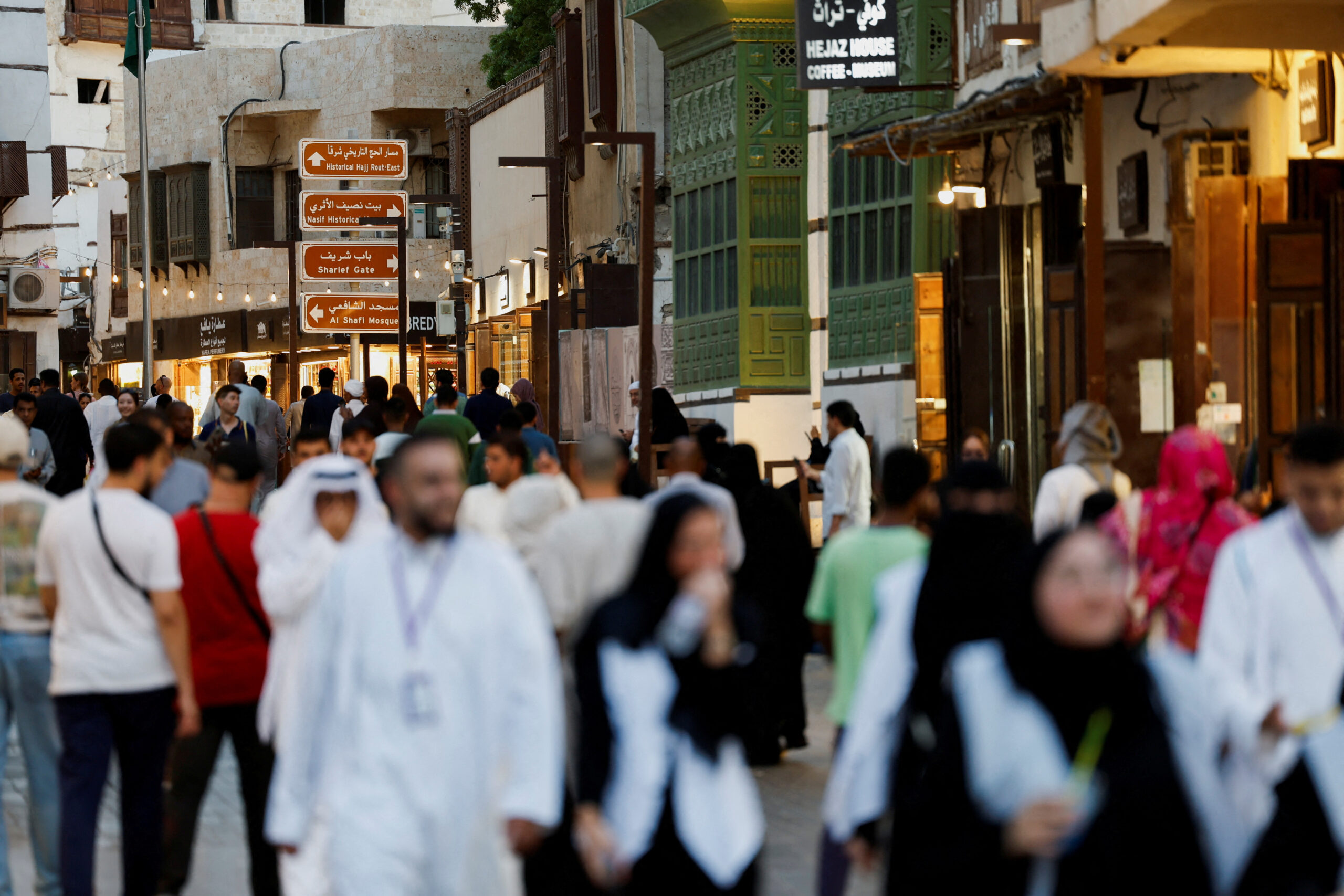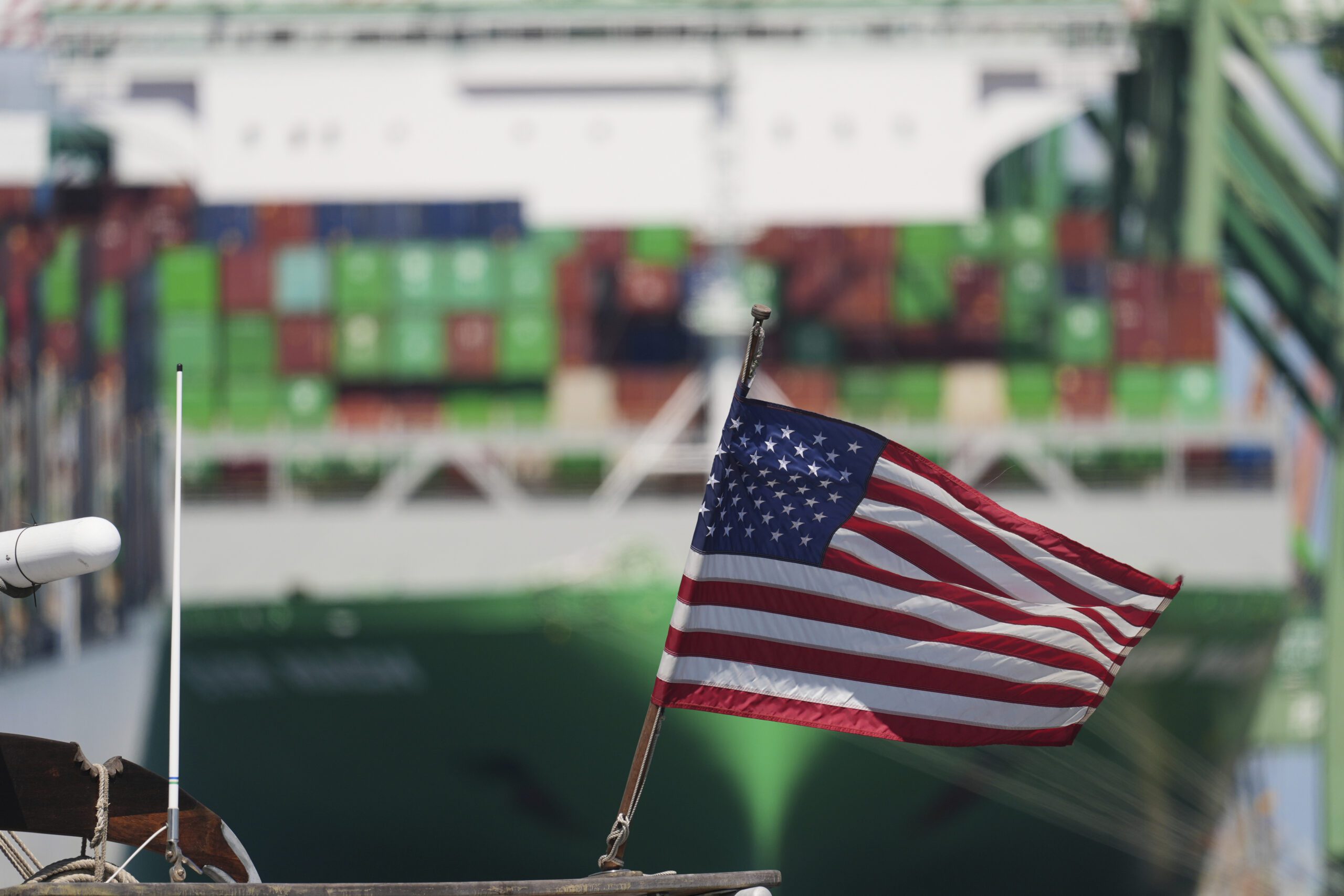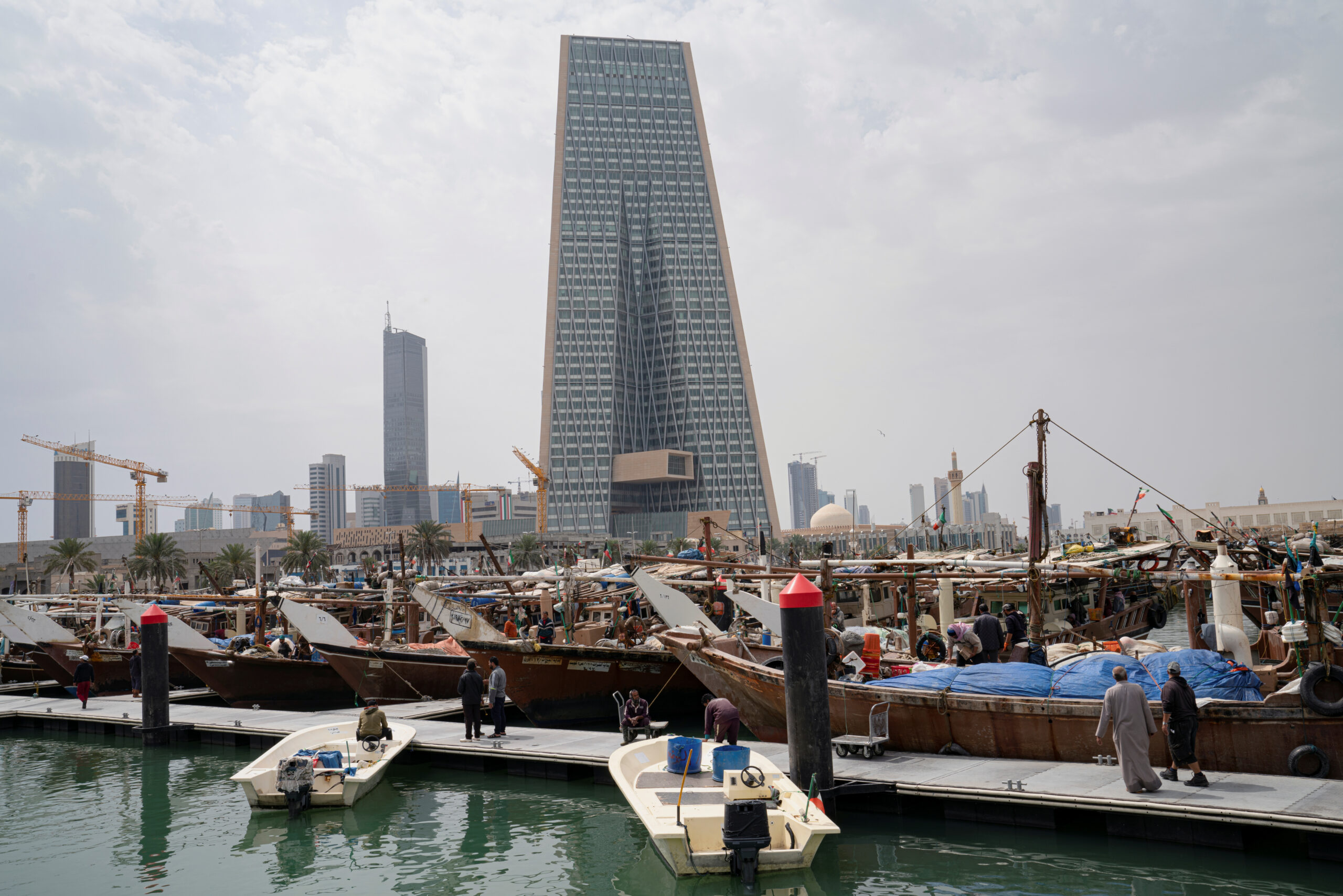The Gulf Countries Need “Good Jobs” in Services
As the Gulf countries transition to a new energy order, creating “good jobs” in high-value export-oriented services that provide citizens with adequate benefits, economic security, and career ladders will help these economies diversify and achieve increased growth.
7 min read
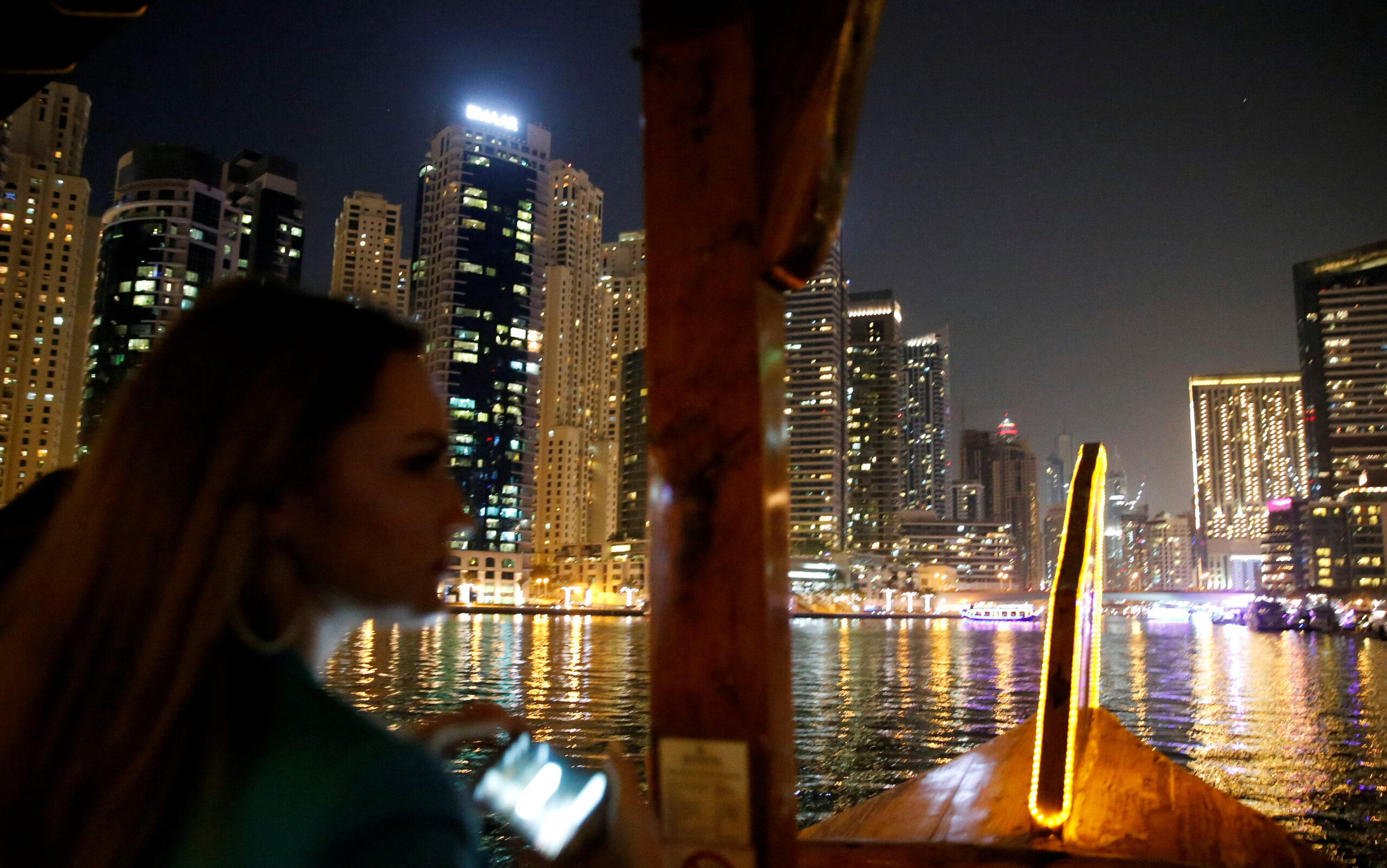
As the Gulf Arab countries diversify their economies away from hydrocarbons, export-oriented activities can offer opportunities to overcome limitations in the local market. At the same time, Gulf countries are looking to provide their citizens with opportunities for social mobility. To achieve these goals, development strategies should incorporate modern, skill-intensive, and export-oriented services. Such strategies can serve as the engine of a new growth model, with a particular focus on “good jobs” in these activities, where Gulf economies potentially have a competitive advantage.
Modern, Skill-Intensive, and Export-Oriented Services
While manufacturing still has an important role to play, emerging economies, including in the Gulf Cooperation Council states, can benefit from adding skill-intensive and export-oriented services as part of their development strategies. Driven by digital transformation and shifting consumer preferences, services have high growth potential. This is particularly the case for information and communication technology, transportation and logistics, finance and insurance, and remote services, such as telemedicine. Services grew from an estimated 65.3% of global gross domestic product in 2023 to 66.2% in 2024, owing to an increase in skill-intensive activities.
Services that used to be classified as nontradables (i.e., with no foreign trade potential) are becoming increasingly export oriented as digital technologies make services more storable, codifiable, and transferable. Recent International Monetary Fund estimates show that median labor productivity relative to manufacturing in the Asia-Pacific region is higher in wholesale and retail trade, more than double in business services, and nearly four times in finance.
Services are increasingly accompanying the exportation of goods, as companies work to bundle manufactured exports with complementary services, such as engineering or maintenance, a trend driven primarily by foreign-owned manufacturers. According to the IMF, since 2000, the GCC’s trade in goods and services grew at an average real rate of 7.5%, almost twice that of real GDP growth of 4.8%, and much higher than the global average of 3.8%.
Services in the Gulf Economies
The Gulf Arab states’ well-developed infrastructure, geographic location, and growing urban centers position them to capitalize on high-value services, such as high-end travel and tourism, finance, transportation and logistics, information technology, and artificial intelligence. Saudi Vision 2030 emphasizes diversification strategies that include such activities, and Dubai has already emerged as a global service hub.
Differences in shares of three “productive services” – commerce, restaurants, and hotels; transportation, communication, and entrepots; and financial services – in percentage of non-oil GDP in the GCC states show where there is growth potential for lagging countries. In commerce, restaurants, and hotels, Bahrain and Kuwait have roughly half the shares of Saudi Arabia and Oman and just a bit more than one-third of the United Arab Emirates. The key to improve here is to promote tourism with more investment in facilities and infrastructure, increased promotion campaigns, and easy entry requirements. The GCC unified tourist visa, which requires tourists to acquire only a single visa to visit all six GCC states, is an important step in this direction.
For transportation, communication, and entrepots, Bahrain and Saudi Arabia can catch up by developing more deep-sea container terminals and logistics facilities. For financial services, where Bahrain dominates, Gulf neighbors can focus on establishing an effective regulatory environment, strong infrastructure, and a pool of highly skilled and experienced professionals in niches such as banking and insurance, wealth management, and commodities trading. This is in addition to Islamic finance, which aligns with national job creation strategies by directly linking financial services to the real economy through asset-backed investments and profit-sharing arrangements, thereby supporting enterprise development and job creation.
Boosting “Good Jobs” in Services
Economist Dani Rodrik defines “good jobs” as those that provide “a middle-class living standard, adequate benefits, reasonable levels of personal autonomy, economic security, and career ladders.” The OECD, through its job quality index, compiles data on earnings, labor market security, and the quality of the working environment, in efforts to help countries assess job quality to identify areas for growth.
In the GCC context, the emphasis is on increasing employment among national populations. National employment programs try to fill quotas, particularly in the private sector. For example, the UAE’s Emiratization initiative requires companies with 50 employees or more to increase the number of Emiratis in skilled positions by 2% per year. These programs, however, are often inefficient because less qualified employees can end up being hired or promoted for the sole purpose of filling the quotas.
A better alternative is to adopt a strategy to develop modern, skill-intensive, and export-oriented services, especially in sectors that have already demonstrated notable growth potential, such as transportation and logistics in Dubai and financial services in Bahrain. Meanwhile, training needs to focus on jobs in high demand. Gulf Talent, an employment agency, regularly posts job openings by sector in the UAE. This data can be used in conjunction with results from good jobs surveys to develop a national good jobs strategy.
In practice, instead of trying to pick winners, i.e., services that are expected to provide good jobs (something that is difficult to do as proved by decades of industrial policy in developed and emerging economies alike), GCC governments would find greater success in establishing specialized free zones in services that provide fast business setups, state of the art infrastructure, innovative funding opportunities for startups, exemptions from customs and corporate taxes, and easy access to global markets. In this context, subsidies can support new and innovative projects that are expected to provide strong demonstration effects to other investors. Otherwise, the choice of investment niches should be left to investors who will assume the risks of failure.
Newly announced projects, such as the establishment by the United States of an AI data center in Abu Dhabi and President Donald J. Trump’s AI deals in Saudi Arabia, are initial steps, but more should be done, especially in education.
Putting the Pieces Together
As the GCC countries transition to post hydrocarbon economies, they should offer their youth good opportunities in the private sector, particularly “good jobs” in export-oriented services. This can complement where Gulf states have made inroads in manufacturing, especially high value-added and export-oriented high-tech and heavy industries, such as petrochemicals, where the Gulf states have a competitive advantage.
The views represented herein are the author's or speaker's own and do not necessarily reflect the views of AGSI, its staff, or its board of directors.



